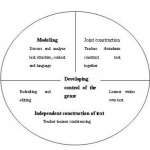 Monthly Editions
Monthly Editions

Classroom Analysis of an Oral Communication Class at a Japanese High School
In Japanese English education, Oral Communication classes were introduced to improve students’ communicative competency. This research compares the outcomes of an Oral Communication class taught by a native English speaking teacher, with those of a reading class taught by a Japanese teacher of English from two previous studies (Nunn, 2004; Otlowski, 2003).

An Exploration of the Relationship Between Learner Autonomy and English Proficiency
Students’language proficiency has been shown to be influenced by learner autonomy. This study investigated the relationship between learner autonomy and English proficiency in a sample of 129 non-English majors in a teacher college in China by means of a questionnaire and an interview.

A blog as a Tool for Reflection for English Language Learners
Educators have reported a number of benefits for language learners keeping blogs; however, none of the available research focuses on the potential for a blog to be a medium for reflecting on learning. This paper draws on preliminary data collected from female Japanese college students.

Project-Based Learning Activities for Short-Term Intensive English Programs
This paper examines the effectiveness of the project-based teaching approach in a short-term intensive English program for Japanese university EFL students. Four distinct projects are described and evaluated, and the benefits and limitations of the four projects are given.

Making the Most of Search Engines for Japanese to English Translation: Benefits and Challenges
The number of Japanese universities offering translation and interpretation courses as part of their language programs has been steadily increasing. Little research has been conducted, however, to explore the potential benefits of search engines for the purpose of correcting and revising text translated from L1 into L2.

Integrating the Teaching of Language As and For Communication in the EFL Reading Class: A Case Study
This case study reports an investigation carried out by two EFL teachers at a secondary school in Argentina. The aim of this work is to classify the properties differentiating the teaching of language as communication from the teaching of language for communication (as presented by Widdowson, 1980).

Online Instruction and Creative Writing by Saudi EFL Freshman Students
This study shows how online courses encouraged non-native freshman students to write poems and short stories in English as a foreign language. The 38 creative writers were enrolled in writing, grammar, vocabulary and reading courses that the author taught over 6 semesters.

A Task-Based Curriculum for Homestay Students
This paper outlines a task-based approach to curriculum design in a homestay program. In an L2 environment, a task-based approach offers the advantage of better approximating the way languages are actually learned, as well as the opportunity to tailor specific tasks to program goals and student needs.

Developing EFL learners’ intercultural communicative competence: A gap to be filled?
As English has become an international language, teaching for linguistic competence cannot be separated from teaching for intercultural competence. However, intercultural communication has not been paid due attention to in English language teaching (ELT) in Vietnam.

Teaching Writing in Chinese Universities: Finding an Eclectic Approach
This paper outlines an eclectic approach to teaching English writing to Chinese university students. It attempts to address the major problems of college English writing: a heavy emphasis on linguistic accuracy; overlooking the development of students’ writing ability; over-emphasis on the “productâ€; a lack of input of genre knowledge; and a lack of variety of assessment.








